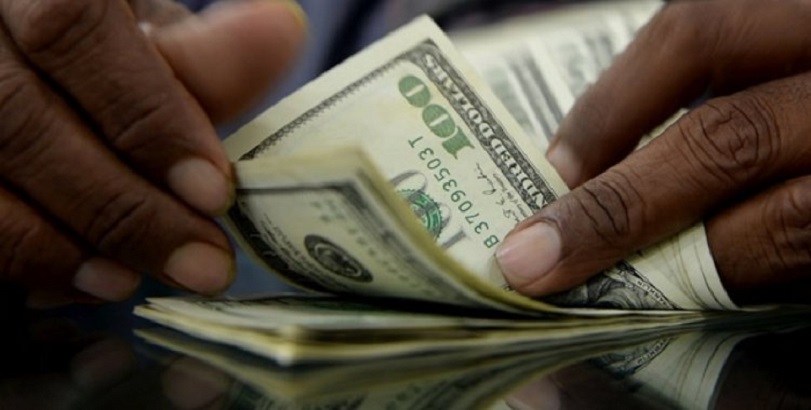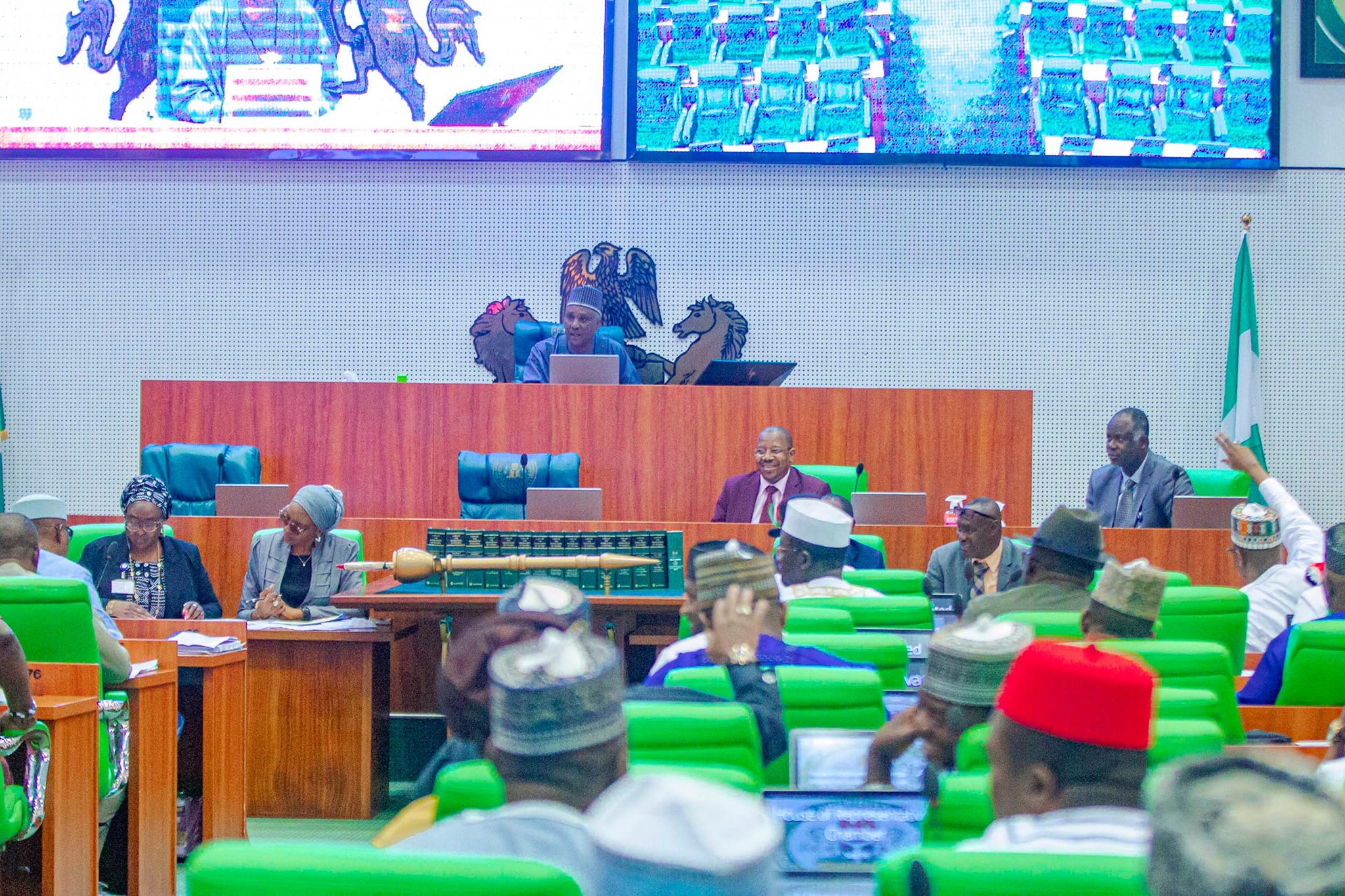Economy
Nigeria Lost $1.4bn to FX Ban on 43 Items in Four Years—Cardoso

By Adedapo Adesanya
The Governor of the Central Bank of Nigeria (CBN), Mr Olayemi Cardoso, has admitted that the country recorded a revenue drop of $1.4 billion between 2015 and 2019 after imposing foreign exchange (FX) restrictions for import of 43 items over eight years.
The apex bank governor made this known on Friday while delivering his keynote address at the 58th Annual Dinner of the Chartered Institute of Bankers of Nigeria (CIBN) in Lagos.
The apex bank head, during the preparation of his monetary policy thrust, cited available data saying, “Studies have shown that during the period when the 43 items were restricted, there was a 51.0 per cent increase in trade evasion by importers accessing the foreign exchange market, resulting in a revenue drop of approximately $1.4 billion or $275 million annually, between 2015 and 2019.”
One of his early moves after his appointment was the restoration of the 43 items prohibited from access to the foreign exchange (FX) window in 2015, under the administration of his predecessor, Mr Godwin Emefiele following the directive of former President Muhammadu Buhari.
The decision came about eight years after the bank on 23 June 2015 restricted those who deal in the items from accessing forex at the authorised FX window.
Speaking on the 43 items on Friday, Mr Cardoso emphasised that the items were never banned by the government but that the CBN only imposed restrictions on access to foreign exchange in the official market.
He said the aim of the policy at the time was to reduce pressure on the demand for dollars for importation and to encourage local production of these items.
Some of the affected items included rice, cement, margarine, palm kernel, palm oil products, vegetable oils, meat and processed meat products, vegetables and processed vegetable products, poultry, tomatoes/tomato paste, soap and cosmetics, and clothes.
Other items included private aeroplanes/jets, Indian incense, tinned fish in sauce, cold rolled steel sheets, galvanised steel sheets, roofing sheets, wheelbarrows, head pans, metal boxes/containers, enamelware, steel drums and pipes, wire mesh, steel nails, wood particle boards, and panels.
Also affected were security and razor wire, wood particle and fibre boards and panels, wooden doors, furniture, toothpicks, glass/glassware, kitchen utensils, tableware, tiles (vitrified, ceramics), textiles, wooden fabrics, plastic/rubber products, polypropylene granules, and cellophane wrappers.
Subsequently, amidst efforts to achieve its backward integration policy on key items, the CBN added fertiliser and maize to the list of items.
The policy drove importers to source forex in the parallel market for transactions, resulting in additional pressure and demand for FX at the unauthorised window.
Within the period, prices of the food commodities among the restricted items, which are major staple foods among Nigerians, skyrocketed by over 100 per cent.
The upward trend in the prices of commodities has had a negative impact on the purchasing power of many citizens.
However, he said the move resulted in increased demand for foreign exchange in the parallel market, leading to the depreciation of the exchange rate in that segment of the Nigerian Autonomous Foreign Exchange Market (NAFEM) and widening the premium between the parallel and official market.
As a result of this, the CBN governor said revenue from tariffs on goods decreased from a high of approximately $920 million in 2011 to about $250 million in 2017.
“In 2019, the actual tariff on goods stood at $320 million, but counterfactual evidence suggests that as much as $680 million could have been earned in the same year,” he said.
Mr Cardoso said evidence has shown that foreign exchange restrictions had an adverse impact on Nigerian households and contributed to inflationary pressures.
He noted that the reduction in trade restrictions and levies on rice, sugar, and wheat by 50.0 per cent had only a minimal impact on welfare, with a 0.8 per cent improvement, and a mere 0.4 per cent reduction in extreme poverty.
The CBN boss said the benefits of trade gains for the general population were negligible, as the average industry in Nigeria pays 13.7 per cent more for its inputs.
“Lastly, it is important to note that trade policy is primarily the responsibility of the fiscal authorities, and delving into such matters falls outside the purview of the CBN,” he said.
Economy
NASD Exchange Rises 1.22% on Sustained Bargain-Hunting

By Adedapo Adesanya
Strong appetite for unlisted stocks further raised the NASD Over-the-Counter (OTC) Securities Exchange by 1.22 per cent on Friday, February 27.
Data revealed that the NASD Unlisted Security Index (NSI) was up by 49.41 points to 4,083.87 points from 4,034.46 points, and lifted the market capitalisation by N19.56 billion to N2.433 trillion from N2.413 trillion.
The volume of securities bought and sold by investors increased by 243.0 per cent to 4.5 million units from 1.3 million units, and the number of deals grew by 15.8 per cent to 44 deals from 38 deals, while the value of securities went down by 19.7 per cent to N82.5 million from N102.8 million.
Central Securities Clearing System (CSCS) Plc ended the session as the most active stock by value on a year-to-date basis with 35.0 million units valued at N2.1 billion, followed by Okitipupa Plc with 6.3 million units worth N1.1 billion, and Geo-Fluids Plc with 122.8 million units transacted for N480.4 million.
Resourcery Plc ended the day as the most traded stock by volume on a year-to-date basis with 1.05 billion units sold for N408.7 million, followed by Geo-Fluids Plc with 122.8 million units valued at N480.4 million, and CSCS Plc with 35.0 million units traded for N2.1 billion.
There were six price gainers yesterday led by FrieslandCampina Wamco Nigeria Plc, which added N9.02 to close at N111.46 per unui compared with the previous day’s N102.44 per unit, Nipco Plc appreciated by N6.00 to N284.00 per share from N278.00 per share, CSCS Plc recouped N1.87 to sell at N70.12 per unit versus Thursday’s value of N68.25 per unit, Geo-Fluids Plc improved by 17 Kobo to close at N3.18 per share versus N3.01 per share, Industrial and General Insurance (IGI) Plc advanced by 5 Kobo to sell at N50 Kobo per unit versus the preceding day’s 45 Kobo per unit, and Acorn Petroleum Plc chalked up 2 Kobo to settle at N1.34 per share, in contrast to the previous day’s N1.32 per share.
Economy
FX Liquidity Crunch Sinks Naira to N1,363/$1 at NAFEX, N1,370/$1 at Black Market

By Adedapo Adesanya
The Naira performed poorly against the United States Dollar in the different segments of the foreign exchange (FX) market on February 27, closing the week without a gain.
In the black market, the domestic currency weakened against the Dollar yesterday by N5 to close at N1,370/$1 compared with Thursday’s closing price of N1,365/$1, and at the GT Bank forex desk, it lost N2 to sell N1,369/$1 versus the N1,367/$1 it was sold a day earlier.
Yesterday, the Nigerian Naira lost N3.75 or 0.26 per cent against the greenback at the Nigerian Autonomous Foreign Exchange Market (NAFEX) to trade at N1,363.39/$1 compared with the previous day’s N1,359.82/$1.
Also, the Naira depreciated against the Euro at the official market during the session by N2.33 to quote at N1,609.22/€1 versus N1,606.89/€1, and appreciated against the Pound Sterling by N6.74 to settle at N1,836.49/£1 compared with the preceding session’s N1,843.23/£1.
The Naira’s latest depreciation occurred as FX demand continued to outpace available supply, intensifying pressure in the market.
In response to the negative momentum, the Central Bank of Nigeria (CBN) intervened by selling Dollars to banks and other authorised dealers in an effort to stabilise the local currency. The move came barely a week after the apex bank had purchased about $190 million from the foreign exchange market to temper the Naira’s rally.
Specifically, the CBN injected $200 million into the official market between Tuesday and Wednesday through an intervention call. However, the liquidity support proved insufficient to reverse the currency’s downward trend.
Meanwhile, the cryptocurrency market declined on Friday, with Solana (SOL) down by 10.4 per cent to $78.60, as Dogecoin (DOGE) decreased by 9.5 per cent to $0.0982.
Further, Cardano (ADA) slumped 8.9 per cent to $0.2647, Ethereum (ETH) slipped by 8.6 per cent to $1,859.10, Ripple (XRP) shrank by 8.2 per cent to $1.30, Litecoin (LTC) lost 1.4 per cent to close at $52.39, Bitcoin (BTC) slid 5.9 per cent to $63,686.39, and Binance Coin (BNB) went down by 4.9 per cent to $596.64, while the US Dollar Tether (USDT) and the US Dollar Coin (USDC) traded flat at $1.00 apiece.
Economy
Oil Prices Climb on Geopolitical Anxiety

By Adedapo Adesanya
Oil prices rose about 2 per cent on Friday, with traders bracing for supply disruptions as nuclear talks between the United States and Iran were without an agreement.
Brent crude futures settled at $72.48 a barrel after chalking up $1.73 or 2.45 per cent, while US West Texas Intermediate crude futures finished at $67.02 a barrel, up $1.81 or 2.78 per cent.
The two sides agreed to extend indirect negotiations into next week, but traders grew sceptical that an agreement between US President Donald Trump’s administration and Iran was possible.
The US and Iran held indirect talks in Geneva on Thursday after Mr Trump ordered a military buildup in the region.
Oil prices gained during the talks, on media reports indicating that discussions had stalled over U.S. insistence on zero enrichment of uranium by Iran. However, prices eased after the mediator from Oman said the two sides had made progress.
They plan to resume negotiations with technical-level discussions scheduled next week in Vienna, Omani Foreign Minister Sayyid Badr Albusaidi said on X.
Market analysts noted that geopolitical risk premiums of $8 to $10 a barrel have been built into oil prices on fears that a conflict will disrupt Middle East supply through the Strait of Hormuz, where about 20 per cent of global oil supply passes.
To cushion the impact from a possible strike, one of the world’s largest oil producers, the United Arab Emirates (UAE), is set to export more of its flagship Murban crude in April, while Saudi Arabia said it would also increase oil production.
Additionally, Saudi Arabia may raise its April crude price to Asia for the first time in five months due to higher demand from India to replace Russian supplies, potentially raising it by about $1 a barrel.
Meanwhile, the Organisation of the Petroleum Exporting Countries and its allies (OPEC+) is likely to consider raising oil output by 137,000 barrels per day for April at its March 1 meeting, after suspending production increases in the first quarter.
The resumption of output increases after a three-month pause would allow Saudi Arabia and the UAE to regain market share at a time when other OPEC+ members, such as Russia and Iran, contend with Western sanctions while Kazakhstan recovers from a series of oil production setbacks.
Eight OPEC+ producers – Saudi Arabia, Russia, the United Arab Emirates, Kazakhstan, Kuwait, Iraq, Algeria and Oman will meet at the meeting on Sunday.
-

 Feature/OPED6 years ago
Feature/OPED6 years agoDavos was Different this year
-
Travel/Tourism10 years ago
Lagos Seals Western Lodge Hotel In Ikorodu
-

 Showbiz3 years ago
Showbiz3 years agoEstranged Lover Releases Videos of Empress Njamah Bathing
-

 Banking8 years ago
Banking8 years agoSort Codes of GTBank Branches in Nigeria
-

 Economy3 years ago
Economy3 years agoSubsidy Removal: CNG at N130 Per Litre Cheaper Than Petrol—IPMAN
-

 Banking3 years ago
Banking3 years agoSort Codes of UBA Branches in Nigeria
-

 Banking3 years ago
Banking3 years agoFirst Bank Announces Planned Downtime
-

 Sports3 years ago
Sports3 years agoHighest Paid Nigerian Footballer – How Much Do Nigerian Footballers Earn
















